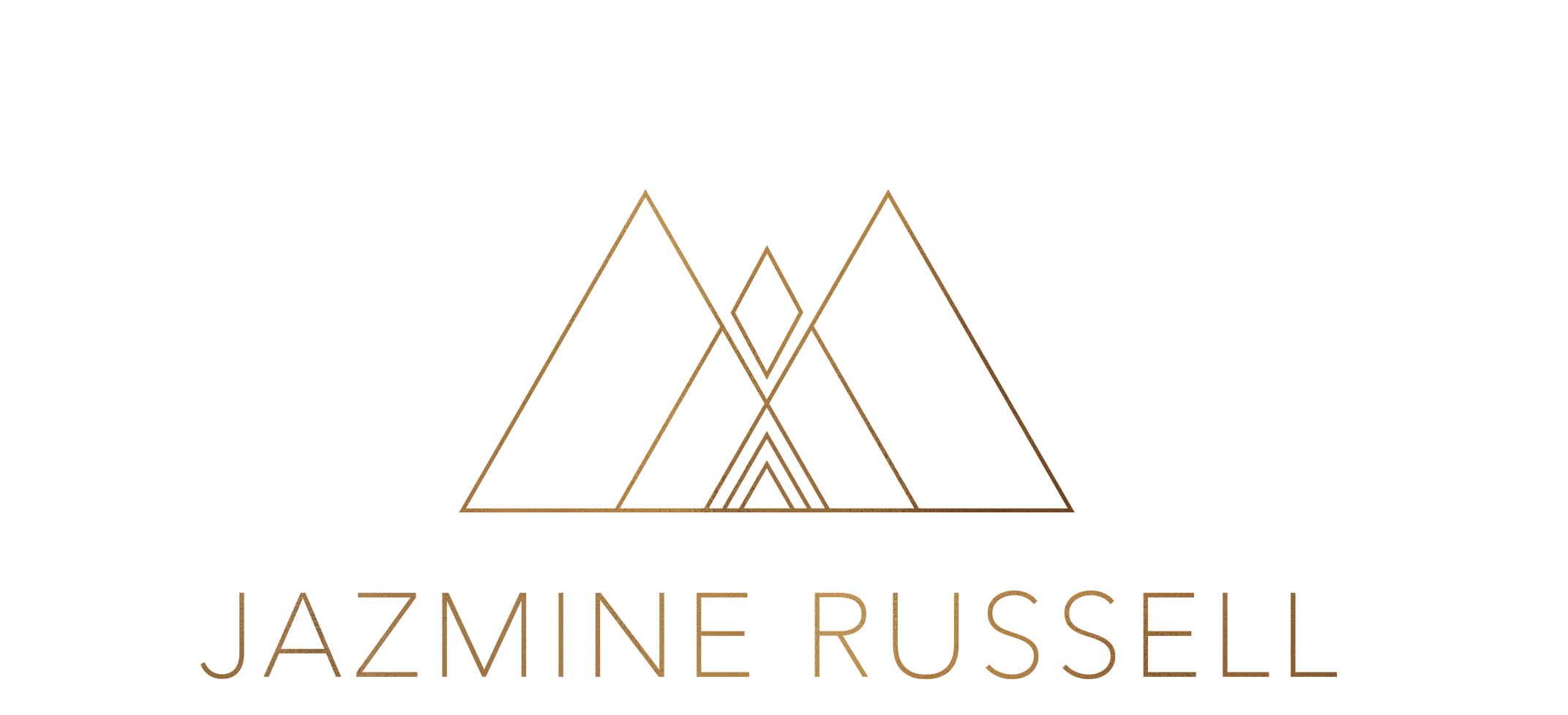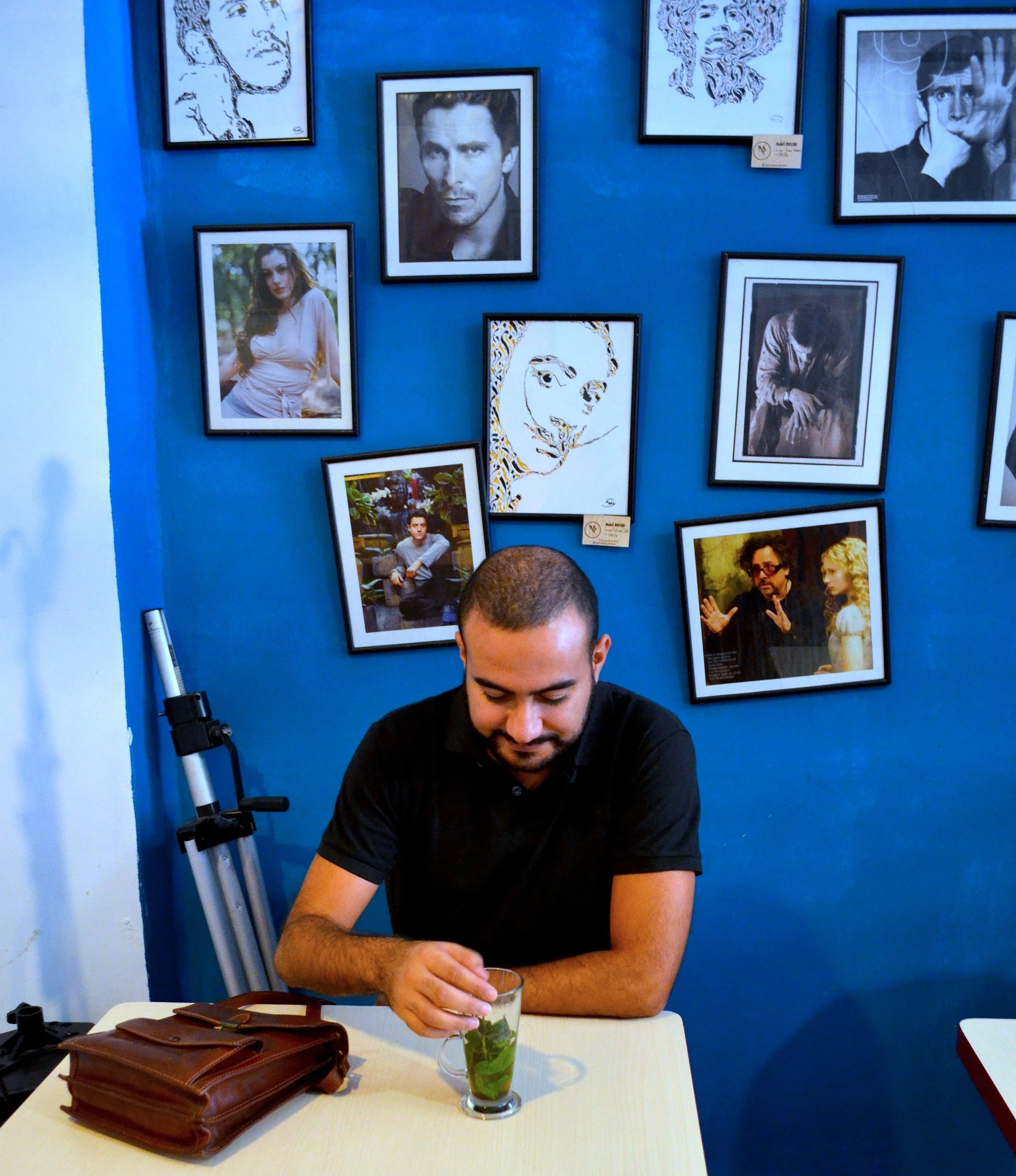Reality vs. Virtual Life
Mehdi is an intern at the Maghreb UNESCO and future graduated Master student in geopolitics. Passionate about all things related to new technologies and communication. Always ready for new innovative projects, debates and constructive discussion, no matter what the subject is. Exchanging ideas is what really matters to him.

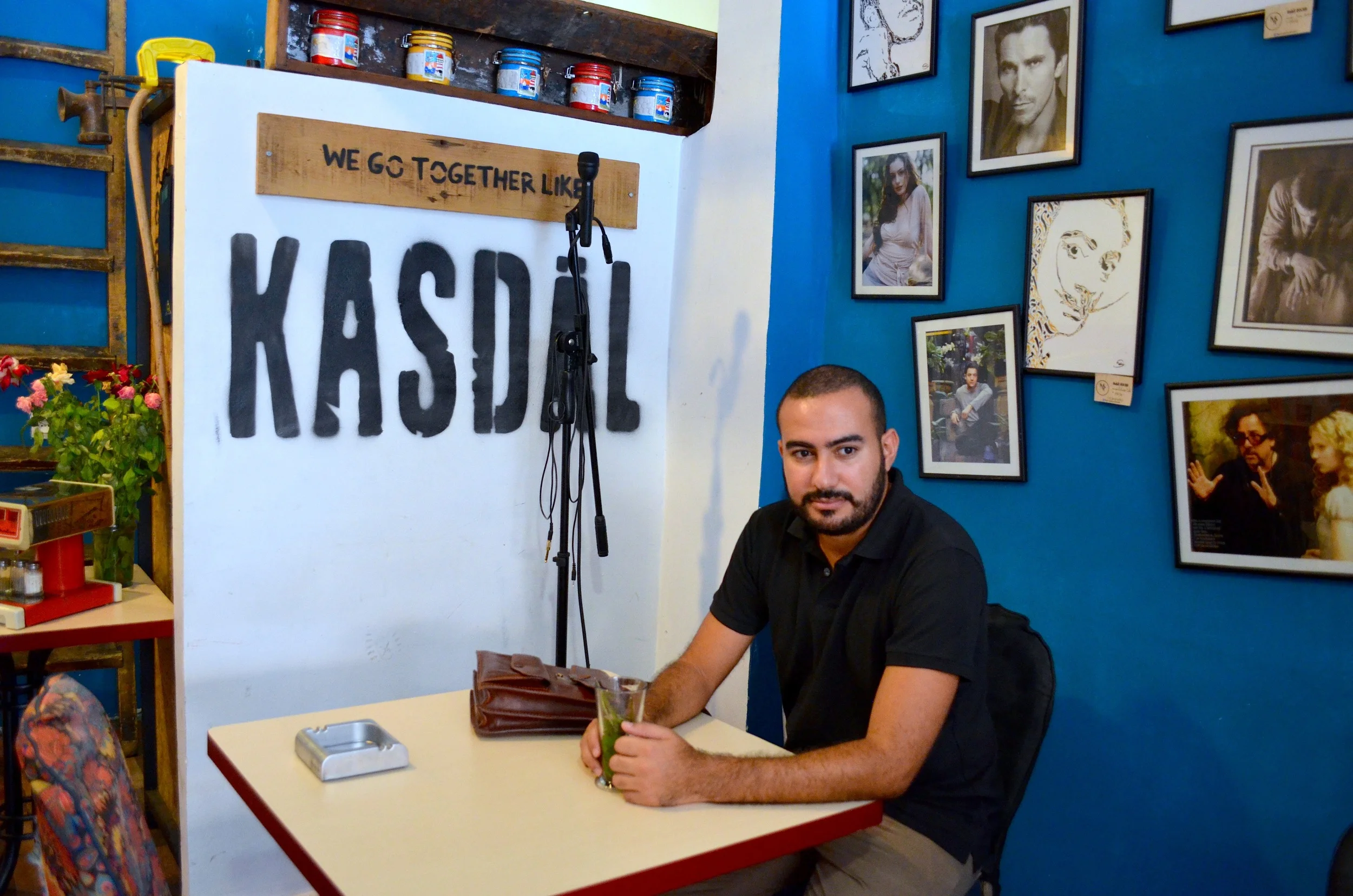
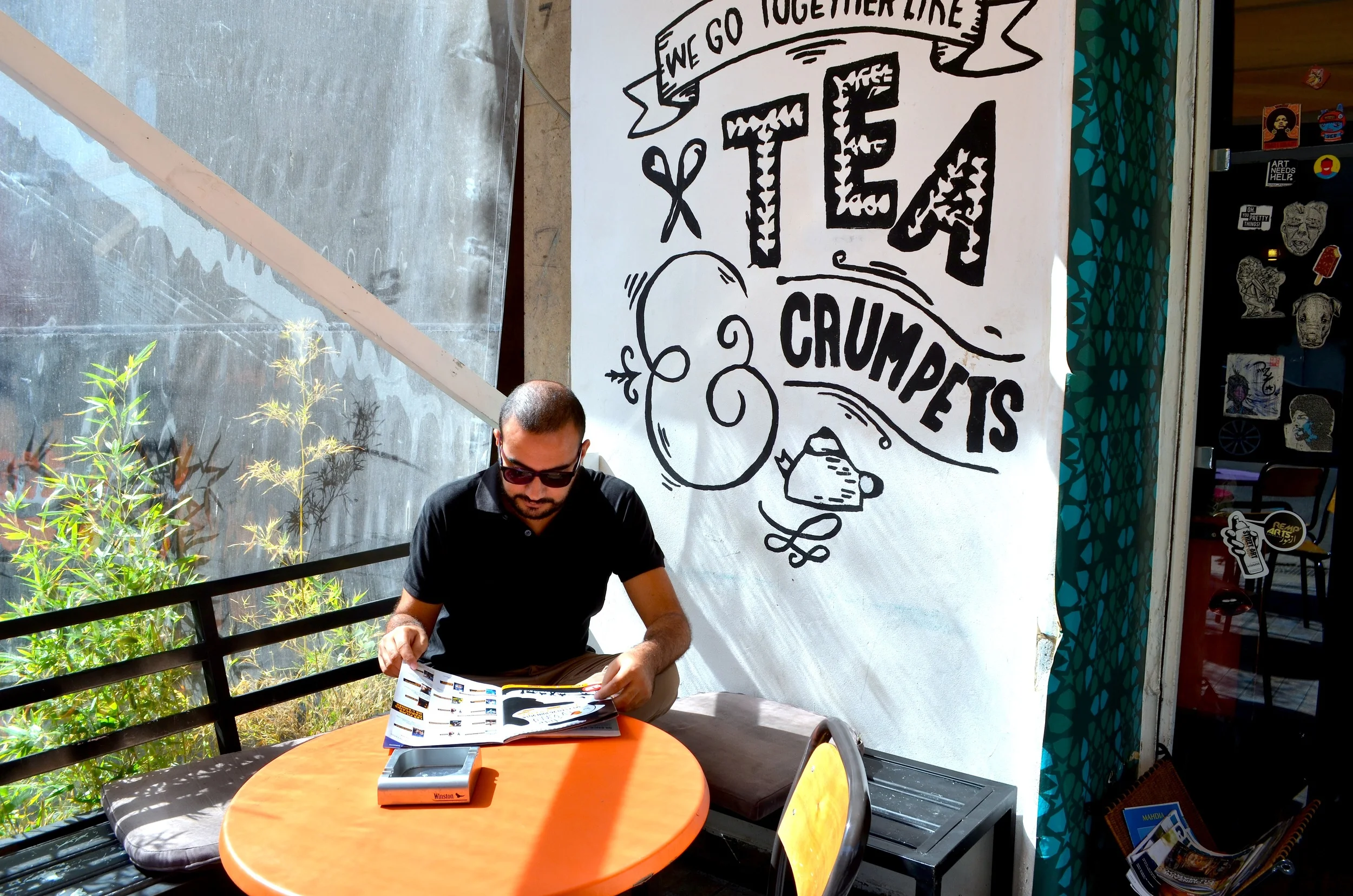

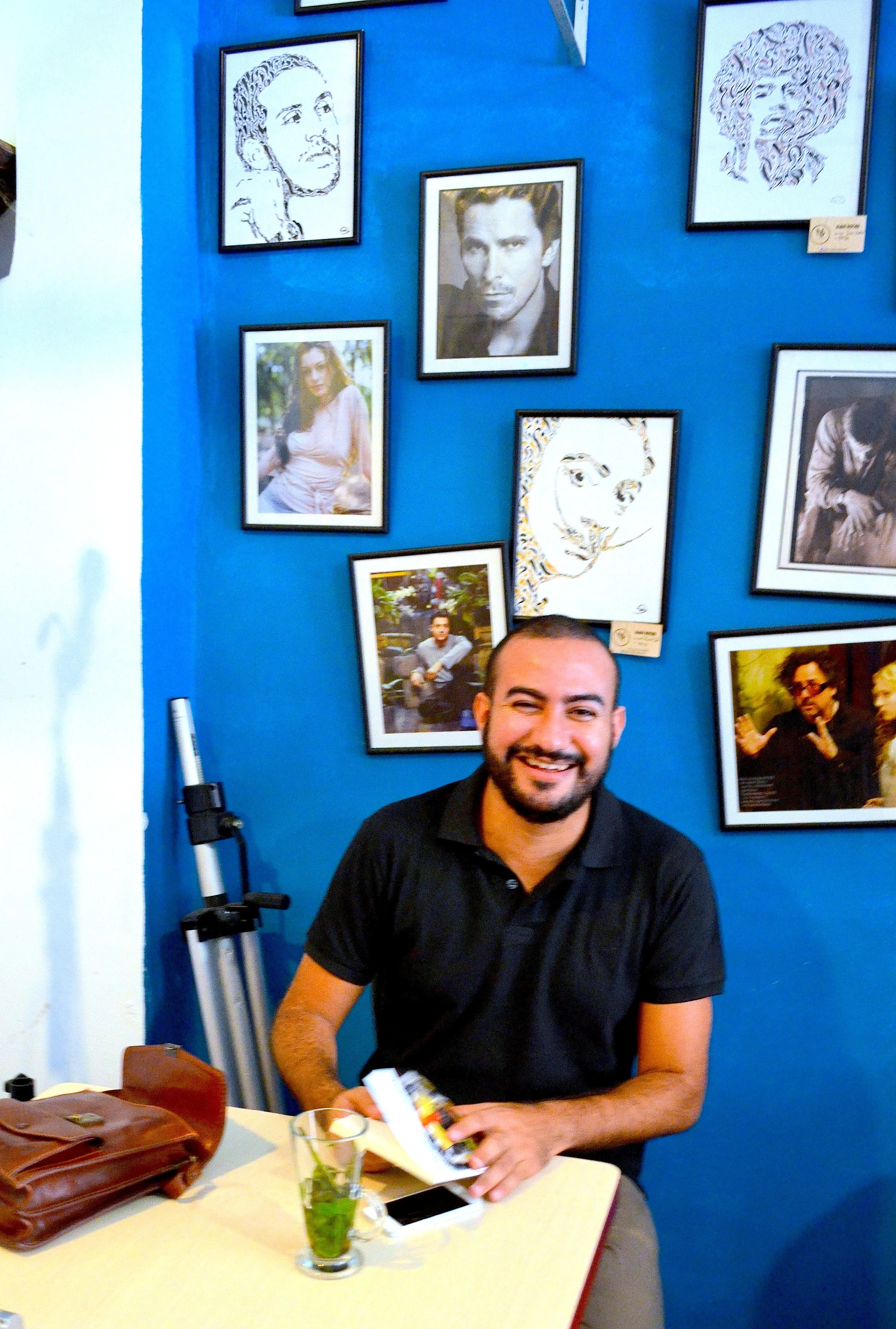
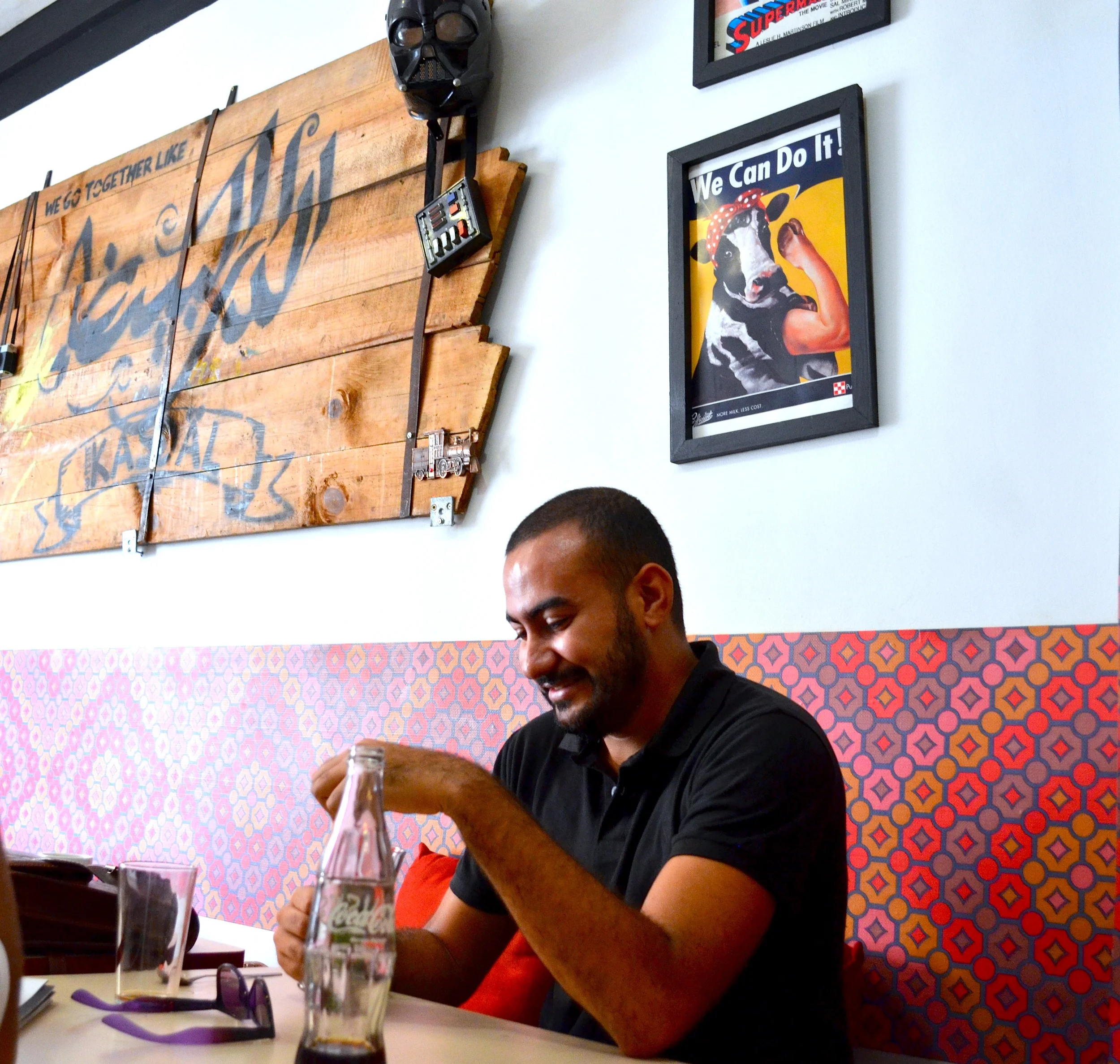
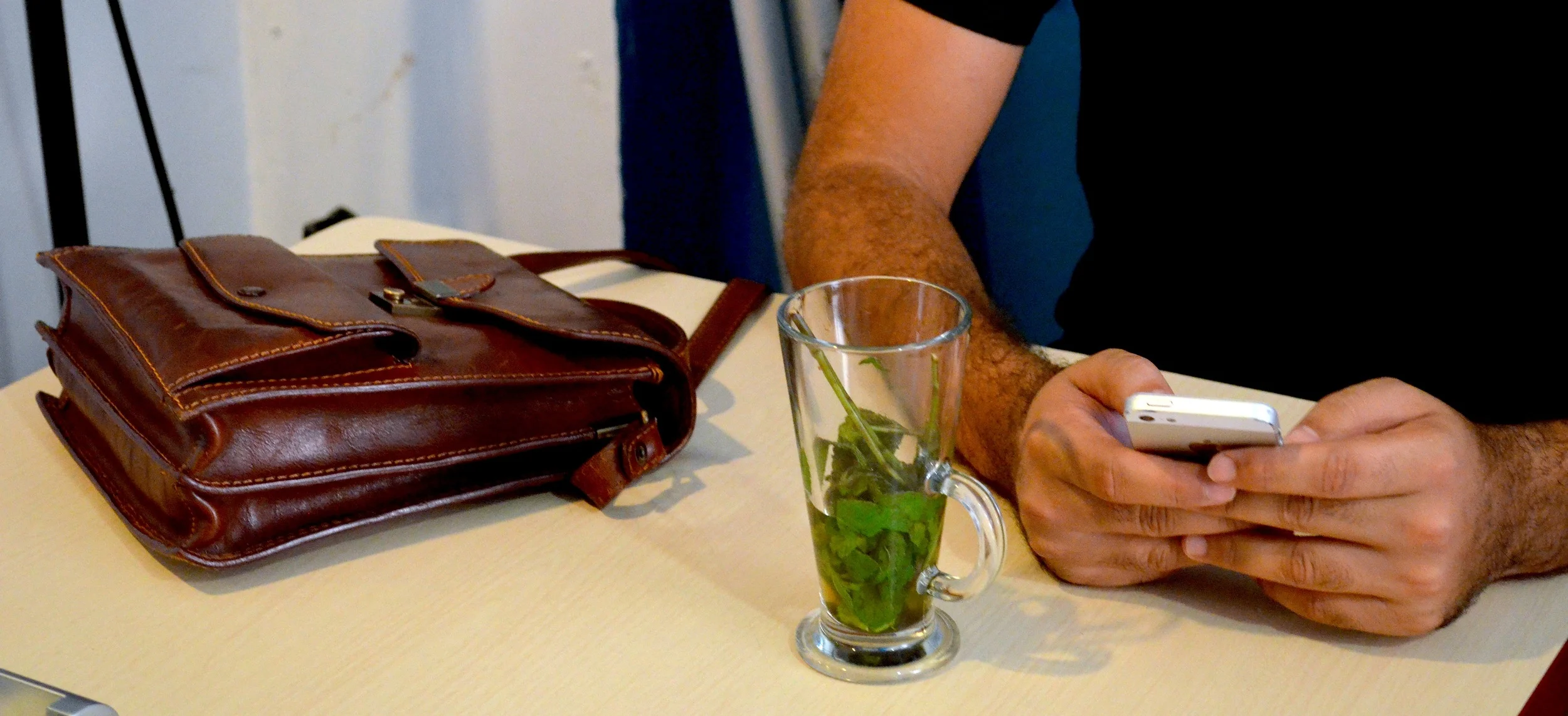

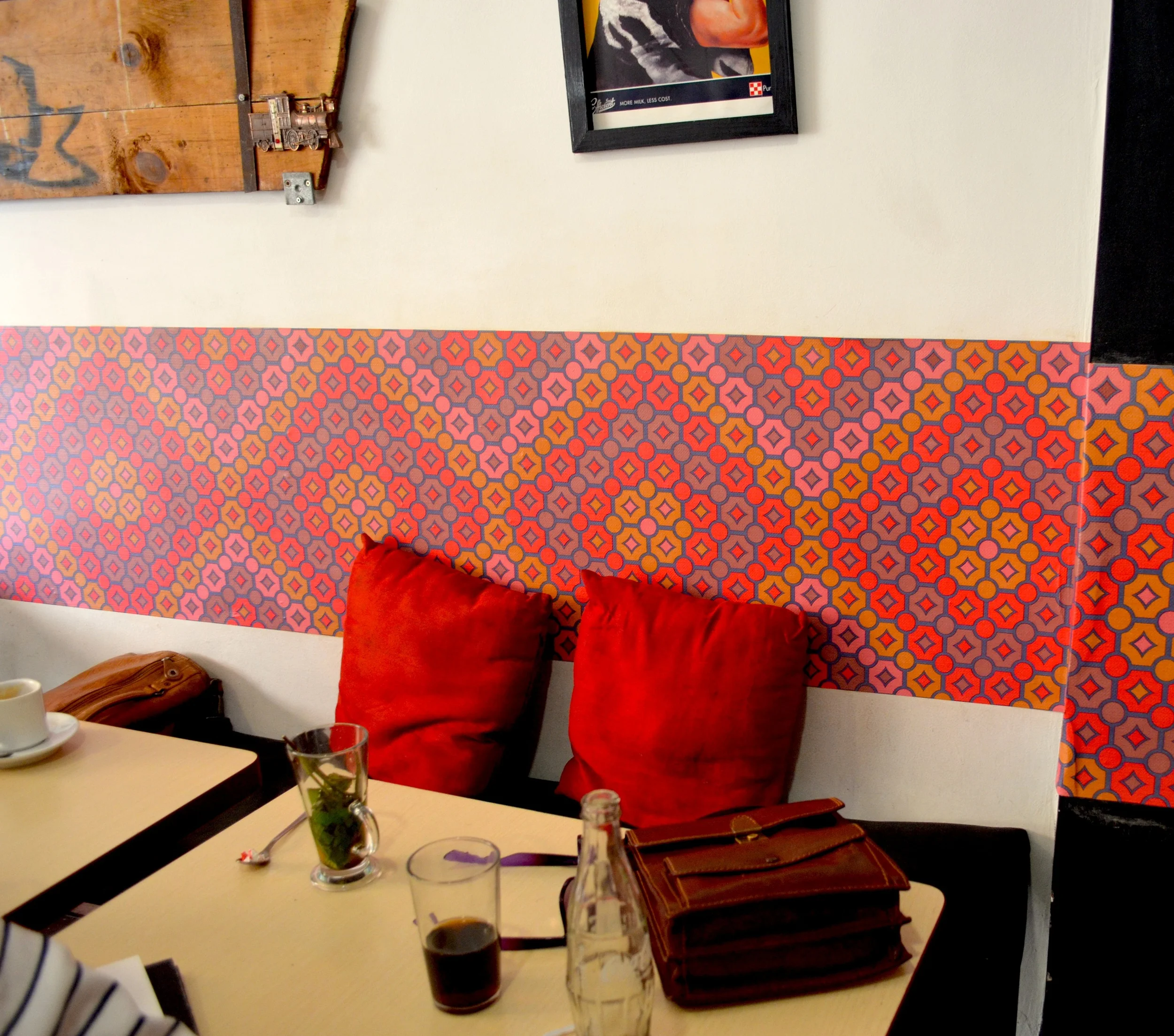


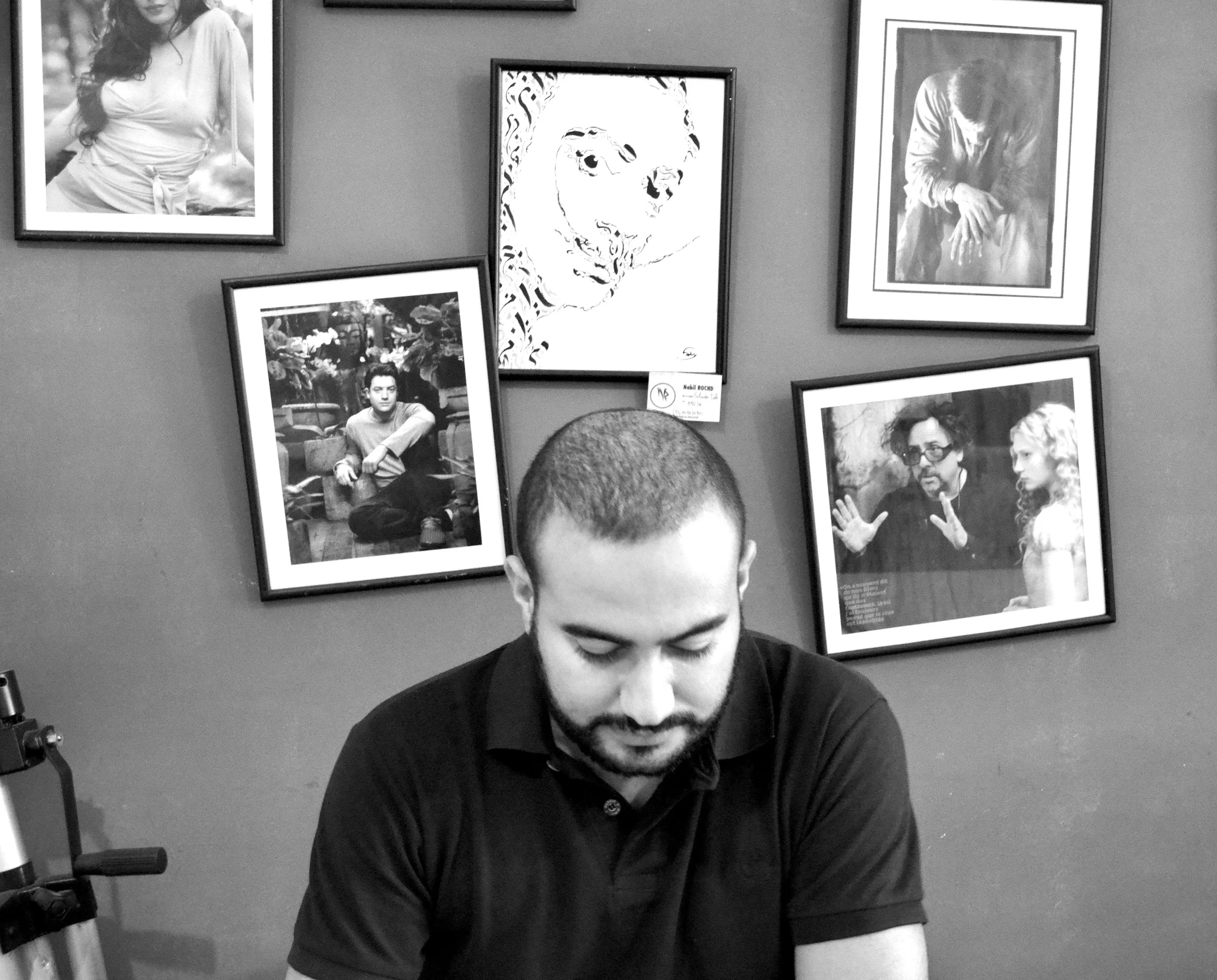
Excerpts From the Interview:
Jazmine: Tell me something about your beliefs on the fundamental nature of reality. What you believe to be true about the world.
Mehdi: Reality now and the reality before the 21st century is different, because now reality is mixed with the virtual life. You know? With internet and a lot of things like this, there are some people who can’t tell the difference between reality and virtual life. So there is a positive thing and a negative thing. The positive thing is that the culture, the knowledge comes to you. Before that you had to go get the knowledge. So this is the difference between virtual life and reality. In reality you must look for something, but in virtual life all of this comes to you. And in reality human relationships are very different than in the virtual world. There are some people who can’t have relationships in real life but in the virtual world they are famous. It’s almost that some people think reality is harder than virtual life. In the virtual you can be who you want to be, not like reality.
But for me, as a Muslim, the reality is what is in the Quran, where there is no place to lie, to steal, to do any bad things. But in the real reality and the real life, there is always bad things. So reality is kind of hard to define. But there is a connection between virtual life and reality. In what I do, in website and social media, most people can’t tell the difference between real life and virtual reality. It’s very very sad because in the life of a human, the goal is to meet each other. If we can’t do that in the future, it will be very sad and very hard and very dangerous for the society. So I believe in the real reality, in the real life and I believe in people and I believe in humans over robots, because who creates the reality? It is humans who create the reality. So reality must stay with the classic ways to life, classic relations, and classic industry with humans, so…it’s a little bit sad when people on laptops who buy phones or computers and only know technology.
Jazmine: So what I hear you saying is that there is the ideal reality which is the spiritual, one where people do good, and then there’s the physical reality where people don’t always do as they should do, and then there’s the virtual reality as on the internet, and all of them are somehow connected. But do you think that the physical world should be more separated from the virtual? That the virtual world should have less influence in our lives?
Mehdi: You know, the virtual can be useful in medical things and such, but maybe, you know, I’m believing in a utopia. I know we can’t reach this level of reality but hopefully we can use virtual things in a good way, just in a good way. Just a way in which humans can help each other. Because sometimes it’s dangerous for humanity. Because when we talk about virtual or mechanical life, I think about weapons, I think about war, I think about the nuclear bomb, I think about all of this…this shit, excuse my words. So utopian reality, in my dream, means good relationships between all humans in the world. Jewish or Muslim or Rastafarian, or something like that. Because money…money is the worst, it is the meaning of war. Because money controls the world, controls humans like me and like you. It’s very simple. So our reality, or my reality is different from yours and from his reality, so the good thing would be if all the people had the same reality.
Jazmine: Do you think it’s possible for everyone to have the same reality?
Mehdi: Not now but maybe in a century there will be no borders between the countries, no language no language barriers, no money, because now there are bitcoins and all these things. But I have a….I have a dream. But it’s not possible because money controls the world. But imagine if all the people don’t have money. Just try to imagine. We could be happy. Everybody would be happy because we can have everything that we want. And imagine if there was no luxury brand…like Louis Vuitton, like all this shit. Imagine, just imagine, we have clothes for the same price, and cheap. Because really all the clothes are the same it’s just the brand that's different. So if we think about it, it’s stupid and crazy. Even I am Left in politics, maybe. Not socialist or communist.
But in all the earth, there are a lot more poor people than rich people. The rich is just 1%. So imagine 99% is poor or less than halfway between rich and poor so I am sure that people will choose the good thing which is to live with the same amount of food and clothes and houses. Everyone will be working and contributing. It’s difficult, but like I said, we should give the choice to people.
…
" So its very extreme-virtual life. It’s like the American Dream. So maybe you write something and you have more than one million likes and you will be a famous writer or maybe people will see you naked on the internet or something like this and after you can’t work and can’t have relationships…you know? So in virtual life there is no control, there is no limit. It’s extreme on both sides."
…
Jazmine: Well I’m wondering about where you think the future will lead in terms of virtual reality. I feel like there are so many possibilities of what can happen both politically and just with the internet. Do you think it’s possible to go in a good direction?
Mehdi: You know, I feel with things like Big Data and Google Glass…I’m trying to remember because I was just talking about this yesterday, all this new technology that can change our life, and we were talking about ‘trans-humans’. Trans humans are people that are plugged-in, connected, but extremely connected in their house, in their car, etc. So this is bad because we will be controlled, and the government will know everything that happens in our lives. And they will use that against us. And the big companies control the world, because money controls the world. It’s not always political, it’s more money and banking industries who control the world. The federal bank is controlled by Rothschild, and Rothschild is just a guy, and it’s pretty much a private company. So people will try to sell us what we like because they know all about us, so it’s easy. They know you like something so they will propose to you that thing. It can be so automatic. So I’m a little afraid about the future because we will be even more controlled than now, I’m sure, and they will do everything to do so. And maybe you will think I’m crazy, but I think things will become even more difficult in terms of freedom of speech or freedom in general, it will be even more limited than now. And freedom is more limited now than before. So I think it will be changed for the worst.
Jazmine: You think that even if people may have more possibilities, more opportunities through the virtual world, the government can still control people through the virtual world so in actuality the freedom is more limited?
Mehdi: Yeah, even in the virtual reality. Because in the virtual world all of the places one can have freedom of speech is a big company. Like Facebook, it’s a big company, this is one of the biggest platforms for freedom of speech, so Facebook surveys information from you. So even in virtual life we will be controlled because in virtual life, it’s even easier than in reality. But in the internet there is no limit for the government so they can control, survey as they want, where they want and when they want. So it’s easier.
Jazmine: So what do you think is the best solution? The best way to gain more freedom or not be controlled, manipulated?
Mehdi: You know, it’s maybe weird but I believe in revolution, you know? I believe in human revolution. To revolt just against the people who want to control us. But now it’s difficult, you know? Not impossible, but difficult, because they show people the dark side of revolution. They say, “Revolution means breaking shops and killing people” and maybe it’s true. The French Revolution, they did that, they were killing people and breaking and stealing, but like we say, it’s a process, a democratic process, you know? They must do that a good future. So a lot of people sacrificed, and a lot of things were sacrificed, but for a good future. And now France is one of the best democratic countries in the world. But when I see Tunasia, when I see Egypt, it’s a little bit hard, in the beginning, but after I’m sure they will win the pursuit to democracy, because democracy is the goal and the dream. So if we want change, we can do something to help it because solidarity is very very very very important. But because people now do not have solidarity, that’s why the government can do what they want. But if people had solidarity, if they come together, it would be very good to propose a new idea and do something about it.
…
"Everybody wants to be free, but even if I have liberty and freedom, it stops at the beginning of your freedom. I think Descartes said this. So I’m not for stopping people or for censoring people but I am for respecting each other."
…
Jazmine: How do you think that your culture - being Moroccan, living in Morocco, and your environment, the way you grew up - how do you think these things have affected your beliefs about reality?
Mehdi: Of course they have because like I said I’m a Muslim and I read the Quran. I believe in God as the reality. But like I said the reality in the Quran is not the real reality that I live because when you read the Quran, it’s like a utopian reality. The Quran shows the ideal, but people are influenced by TV and media and business and money and you know, there are many other influences. So I feel that I am lost in my culture, my Moroccan culture, because…well partly because of globalization. Americans created globalization and haven’t changed their attitude, so we change ours. We are the victims of globalization. And all of the Moroccans forget and have lost their culture. Their culture, their religion, their clothing, their ways of life, a lot of things, you know? We are becoming like European or American people because we speak their language – French and English – we wear what they wear, jeans and a T-shirt, same brands too, so I am so negative about that. Because Moroccans lost their culture and it’s extremely sad.
Jazmine: So you think technology can bring maybe more knowledge of other cultures, but at the same time it makes people lose their traditions to the dominant culture?
Mehdi: You know, if you go to Los Angeles and ask about Morocco, people will say it’s desert or camels, or…
Jazmine: People will say that it’s in the Middle East, they typically don’t know that it’s in Africa even.
Mehdi: Yes, yes. They say that maybe Africa is only black people. So you know it’s very sad for our culture and our society. Because our society has changed and maybe in 20 years they will change all of the traditions.
Jazmine: So you think it would be better if Morocco stayed a bit more traditional, but do you think the loss of tradition is largely because of the internet?
Mehdi: We don’t need to do without the internet, but only take the good things. If we use it in a good way and not with hateful intentions. So I’m not for removing the internet from our lives, and I do not what to stay in traditional Morocco, but we can mix traditional and modernity, and I think a lot of countries do it like Sweden and Norway, Scandinavian countries. But I’m not for extreme tradition or extreme modernity. Mixing tradition and modernity, it would be very good for our society. I believe in that. I try to do that in my own family. My mother lived in France and my father was in a French school but we tried to keep this Moroccan identity, Moroccan tradition and culture, and we tried to be together for meals and for all of the holidays, Eid, religious holidays. But I’m not like the Taliban, wanting to stay traditional…Moroccans are very open-minded, but I’m afraid of losing the tradition.
Jazmine: What’s the most important aspect of the tradition? What do you really want Moroccans to keep?
Mehdi: Moroccans, you know, we have the best clothing in Africa, we have the third best cooking in the world after the French and Japanese. We have, for celebrations, the best weddings. Moroccan weddings are very famous, people from many countries around the world want to do weddings like Moroccans. So we have architectural Moroccan traditions too, we have…you know it’s not just the material things, it’s the immaterial things too, a way of life. People were respectful, helpful, Moroccans are hospitable people. I feel that we’re beginning to lose all of this. That’s it, it’s just a way of life. Morocco, it’s not just a country, it’s a concept. It’s a very old concept. Old people in the USA or in Europe want to be a part of this. But Morocco is beginning to lose it. Strange people want to be what you are, and you try to change for them.
I am one of the victims of globalization too. So I try to be like everybody, because if I am different, it will be a problem. Because people will reject me. It’s always a problem to be different. Marginalization. So I try to be like the people, but I keep my mind free. It’s the only thing I keep free. Because I can think what I want and write what I want. But there are limits too. For me, life is just absurd. Life is absurd because there is no logic in technology, in life, in reality. There is no logic. This is the closing sentence. So if we think a lot, we will never find a result, a true answer, a true response, because nothing is true. It’s just my opinion, but for me, nothing is true. The government lies, steals, in Morocco, in South Africa, in USA, in France, in Spain, all around the world. People think about money before helping people. So there are rare people who think about each other but they are not famous, they are not listened to, because they are not interesting for people. So it’s maybe a dark vision of life, but I just try to live and wait for death and in the meantime try to be a force of good, to be normal but with weird thoughts and a weird way of thinking.
